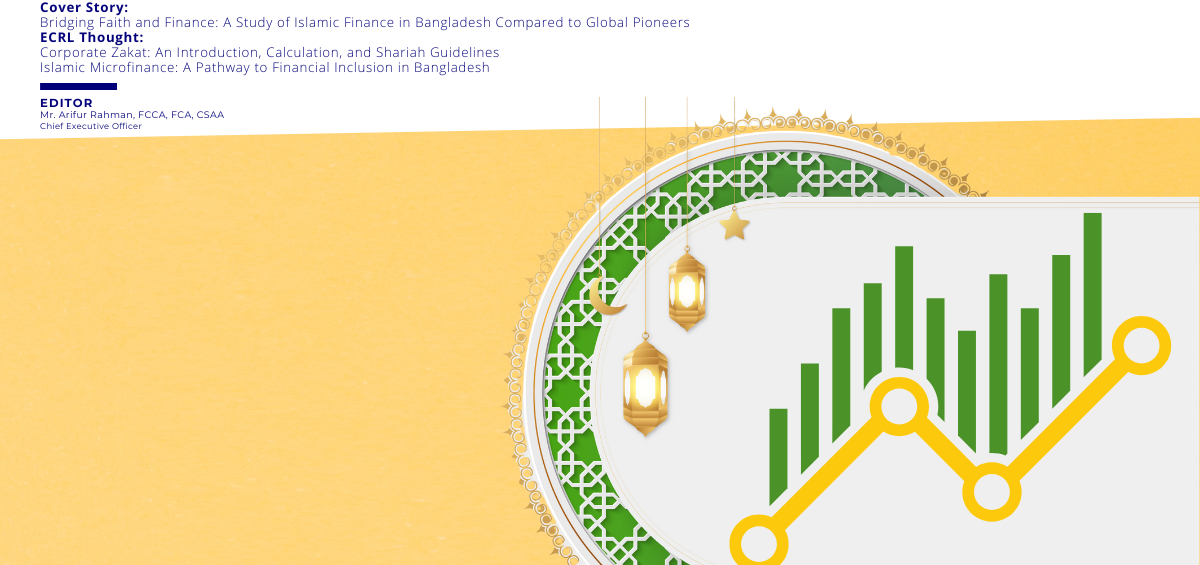As we turn the pages of this March 2025 issue of the ECRL Monthly Economic & Business Review, we are proud to present a comprehensive and timely exploration of Islamic finance in Bangladesh, set against the evolving backdrop of the global Islamic financial ecosystem. This month, we delve into the increasingly vital conversation about ethical and inclusive finance, tracing the footprints of a sector that is becoming a cornerstone of sustainable economic development, both locally and globally.
The cover story, “Bridging Faith and Finance,” explores the rise of Islamic finance in Bangladesh, which now comprises over a quarter of the nation’s deposits and investments. This evolution is helping reshape the country’s financial services landscape with a strong focus on ethics and inclusivity. While the momentum is undeniable, the sector still faces regulatory, liquidity, and awareness challenges. Nonetheless, Bangladesh can take inspiration from the success stories of Malaysia, Indonesia, and Bahrain, where strategic reforms, fintech innovation, and robust governance have transformed Islamic finance into a mainstream engine of economic empowerment.
This issue also brings attention to crucial yet underrepresented areas like Takaful (Islamic insurance), Islamic microfinance, and Sukuk (Islamic bonds). Our second “ECRL Thought” feature—”Islamic Microfinance: A Pathway to Financial Inclusion in Bangladesh”—highlights how interest-free, Shariah-compliant financial solutions can provide ethical credit and support to underserved rural populations, enhancing economic participation and poverty alleviation.
In addition, we spotlight the transformative potential of Corporate Zakat in ethical wealth distribution and its implications for sustainable business practices.
We are also pleased to present insightful perspectives from expert interviewees in this edition, including Mr. Mezbah Uddin Ahmed (FCCA, CIPA, CSAA), Research Fellow at ISRA Institute, INCEIF University, Malaysia; Mufti Abdullah Masum, CSAA, Founder Director of IFA Consultancy Ltd; and Mr. R.M. Farhad, CEO (In-Charge) of DAM Foundation for Economic Development (DFED), share valuable insights in this edition. Their contributions cover a spectrum of themes, from regulatory priorities and Shariah governance to financial inclusion, Islamic social finance, and practical solutions in microfinance. These expert perspectives enrich the ongoing dialogue around inclusive and sustainable Islamic financial services in Bangladesh.
As always, we believe in the power of knowledge to catalyze change. We hope this edition inspires stakeholders across sectors to engage more deeply with the principles and practices of Islamic finance. Whether you are a policymaker, financial professional, entrepreneur, or researcher, the insights within this issue aim to equip you with the tools to help shape a more equitable and resilient financial future for Bangladesh.
Happy reading!


